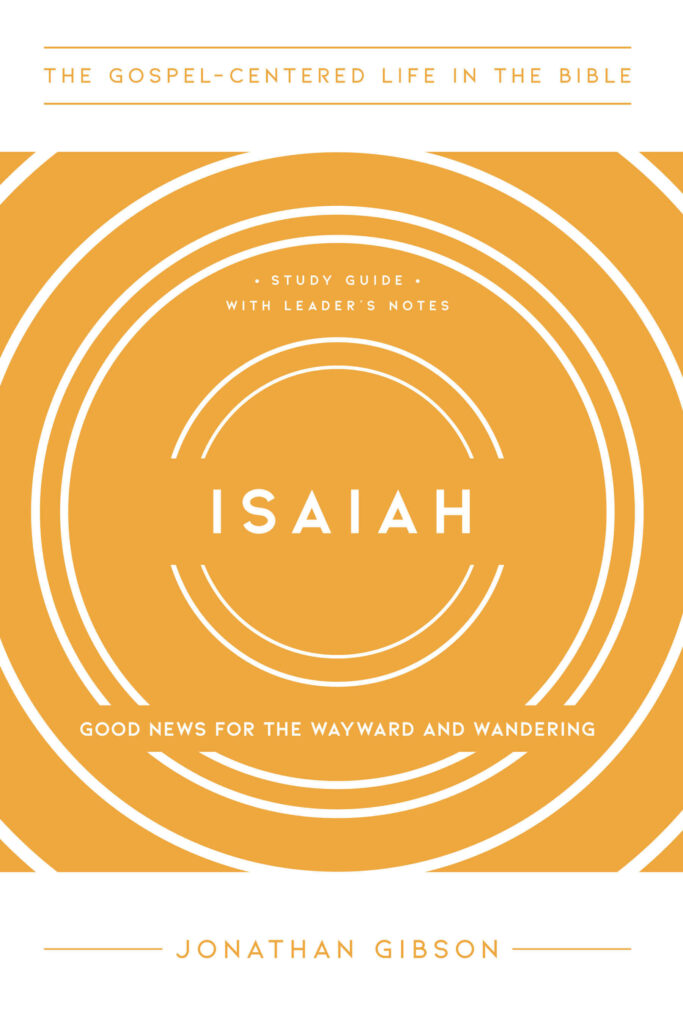Isaiah 49 is a mountain-peak passage. Once you’ve climbed it, you just have to pause at the top and take in the view. So I want us to look at the summit of this passage, verses 14–16, because it gives us the most wonderful assurance that nothing in life could ever make God forget us.
Of course, that’s not how the exiles in Babylon feel. God has just spoken of his coming servant who will restore his people and, even more, be a light for the nations “that my salvation may reach to the end of the earth” (v. 6). It’s such good news that all creation rejoices: “Sing for joy, O heavens, and exult, O earth” (v. 13). But the people are still in captivity, far from home. To them, the good news might as well have been no news. “But Zion said, ‘The Lord has forsaken me; my Lord has forgotten me’” (v. 14).
Notice how they address God first by his covenant name, the Lord. Yet they accuse the God who swears by his covenant name of breaking his covenant. Then they address God by his title, the Lord, a reference to his sovereignty. Yet they accuse the God who rules over everything of having forgotten something—his people.
Despite this, God responds not with browbeating or more exile, but with love and promise and reassurance.
“Can a woman forget her nursing child,
that she should have no compassion on the son of her womb?Even these may forget,
Isaiah 49:15
yet I will not forget you.”
At first, we think the answer to God’s rhetorical question must be obvious. No mother could ever forget her nursing child. It’s the most intimate human relationship on earth. I remember a conference where the speaker told how, ten years before, he and his wife had a daughter born to them with a serious birth defect. She lived about an hour and then died in their arms. I was sitting next to his wife as he told the story, and I still remember seeing tears run down her face as he talked about it. It was ten years later, but that mother cried for her little girl like it was yesterday.
The heart of every mother cries out, “I could never forget my child!” That’s what makes verse 15 one of the most offensive verses in the whole Bible. The text says, “Even these may forget.” It does not say some mothers (the few, really bad mothers) might forget their children. No, it shockingly points out the ever-so-slight possibility that any mother might do the unthinkable.
There are places in the Bible where God’s love is likened to that of a mother (Isaiah 66:13; Matthew 23:37). But here, God goes further. The point is that God’s love is not like human love, not even like a mother’s love. With a mother’s love, even though we know that the chances of her ever forgetting her child are very, very slight, yet there still is the unthinkable possibility—offensive even to consider—that the seemingly impossible might happen, that she just might forget the child of her womb. Why? Because a mother’s love is an imperfect, human love.
God’s Love Is a Perfect Love
But God’s love is wholly different: “Yet I will not forget you.” It is impossible for God to forget his children. God is beyond comparison, and this includes his love. It is of a different order; it is in a league of its own—it is perfect love. And perfect love casts out fear, which is why we don’t need to fear. God’s love is steadfast, firm, immovable, unchanging in the storms of life.
And then in the next verse, God explains why he will not forget his children: “Behold, I have engraved you on the palms of my hands.” Palms are visible as you go about your daily life. If you ever want to remember something you can write it on your hand and before long you will see it. Palms are also intimate. God marks a part of himself with our names—not painted on, but engraved. This involves scars, self-inflicted wounds.
And scarred palms also mean condescension. In the ancient Near East, a servant would have his master’s name written on his hands. But here, the master is the Mighty One, the Holy One of Israel, the Incomparable One. This Lord condescends to have the name of his people written on his hands!
Nothing Will Stand in His Way
The rest of Isaiah 49 celebrates how God, when he remembers his people, goes on to bring the nations into his church and to conquer our enemies. He reassures his people that nothing will stand in the way of their restoration: not ruined walls, not bereavement, not kings and queens, not oppressors. In the same way, today he assures us that “neither death nor life, nor angels nor rulers, nor things present nor things to come, nor powers, nor height nor depth, nor anything else in all creation, will be able to separate us from the love of God in Christ Jesus our Lord” (Romans 8:38–39).
And how can we be sure of this? Because the God who said he has engraved us on the palms of his hands actually did it—in the person of Jesus Christ, the eternal Son, who condescended to demonstrate his love for us in five bleeding scars. God cannot forget us because Jesus constantly intercedes for us, and he does so with scars on his hands. When Jesus looks at his scars in heaven, he thinks of you. When he was on the cross receiving those scars, you were on his mind. As he sits on his throne, you are still on his mind.
Today he says to you, “Can a woman forget her nursing child and have no compassion? Yes, maybe. But I will not forget you! My compassion is beyond compare. It is inextinguishable and inerasable. Look, I have engraved you on the palms of my hands!”
Excerpted from Isaiah: Good News for the Wayward and Wandering © 2022 by Jonathan Gibson. Used by permission of New Growth Press. May not be reproduced without prior written permission.
Isaiah: Good News for the Wayward and Wandering
Did you know that the prophet Isaiah preached the gospel? The central message of Isaiah is a simple message—God saves sinners. Through a study of Isaiah, Jonathan Gibson guides participants in savoring the basics of the gospel that we need to remember daily: we need saving.






